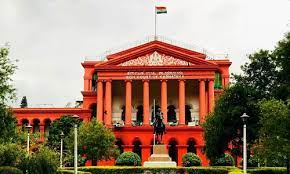
The Kerala High Court in the case Anil Kumar R. v. Regional Transport Officer (Enforcement) & Ors observed wherein the plea is moved by a CRPF personnel against speeding challans issued to him allegedly beyond the statutory time limit.
The single bench headed by Justice C.S. Dias was hearing the present matter. The court in the case observed and has directed the Government Pleader to get instructions.
In the present case, the petitioner was issued two e-challans on dated 05.05. 2023, for the violation of permissible speed limit by his motor vehicle on two instances on 28.09.2022, which is being by an AI Camera and it was also discovered that it was the son of the petitioner who had driven the vehicle on the said date.
It has been stated by the petitioner in the plea that two -Challans were issued in gross violation of the various provisions of the Motor Vehicles Act, and the Central Motor Vehicles Rules, 1989, CMVR. The petitioner further stated that as per Rule 167A (9) of CMVR, thus, the notice has to be issued of the offence ought within the period of 15 days of the occurrence of the offence. Therefore, the petitioner issued the notice only after almost 6 months of the alleged speed violation.
Further, it has been submitted before the court that as per Rule 167A(6)(v), the challan must be accompanied with certificate under Section 65B(4) of the Indian Evidence Act, 1872 and the same was not complied with herein. Thus, the petitioner also alleged that the said notices were “coated with discrepancies”.
It has also been averred by the petitioner that on noticing the discrepancies, he made a representation before the Transport that RTO attempted to state that the same came within the purview of the National Highway Authority of India, NHAI, and not within the Motor Vehicles Department, MVD.
The plea stated that it is being submitted that it being the responsibility of the NHAI, the 1st Respondent i.e., the RTO cannot walk away from its moral and ethical responsibility in seeing to it that the NHAI or the concerned authorities are in the case notified about the lack of safety measures and signages on such a stretch of road, wherein the chances of speeding is high and consequently there are higher the chances of accidents. And, furthermore, the 1st Respondent and its parent authorities, the 2nd Respondent i.e., the Transport Commissioner and the 3rd Respondent i.e., the State of Kerala represented by Secretary, Department of Transport cannot merely wash of its hands from installing and implementing the various safety measures as envisaged under the Motor Vehicles Act and the various rules framed. This is more so when the electronic enforcement speed cameras are being installed by the 2nd Respondent and is being used by it as a milking tool for generating revenue.
Therefore, the plea is filed by the petitioner seeking the e-challans to be quashed. Further, the petitioner in the case seeks a direction to be issued to the Transport Commissioner, the State, and the Central authorities for maintaining the adequate warning signs as contemplated under the Rules.
The counsel, Advocate Rajesh Vijayendran, Advocate Asok Chacko Thomas, and Advocate Sidhiqul Akbar K.A. moved the plea.















